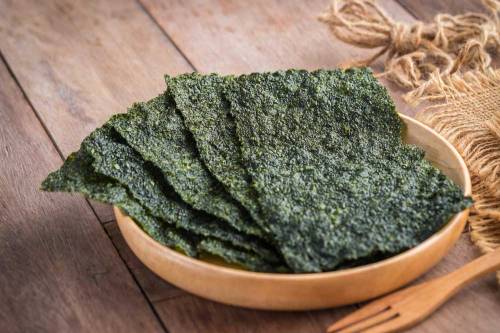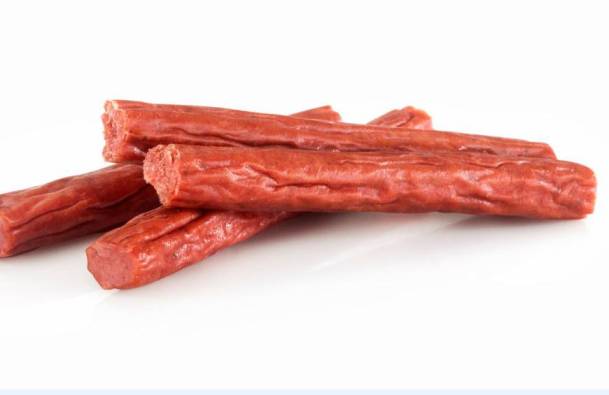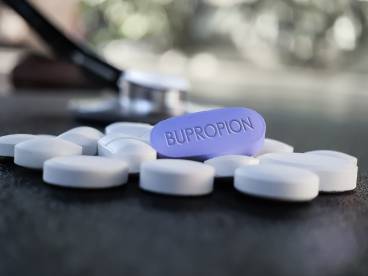Connect with a verified veterinarian in minutes. Licensed vets are available 24/7 to answer your questions. No need to worry about your furry family member.
Has your dog eaten some seaweed? Are you worried the seaweed will make him sick? If so, then you’ve come to the right place. We understand it’s scary when your dog eats something he shouldn’t.
In this article, we’ll take a look at seaweed and whether or not it can make your dog sick. Let’s get started!
What is Seaweed?
Seaweed is a term used for many different types of marine plants and algae, which grow in rivers, lakes, and the ocean. Did you know that some seaweed is microscopic? These are called phytoplankton, which lives suspended in the water. Then there are the giant forests of kelp, which are very long. Their roots are found at the bottom of the sea. Seaweed can come in various colors, including red, black, green, and brown.
The health benefits of seaweed include a good source of vitamins and minerals, as well as protein. Seaweed also has anti-oxidants that are great for the immune system. In addition, it has a lot of nutrients and minerals that can help prevent heart disease, cancer, and other diseases.
Seaweed is high in protein, calcium, potassium, magnesium, iron, iodine, zinc, and selenium. It also contains a large amount of vitamin B12 and D. In addition to these vitamins, it also contains a lot of antioxidants, vitamins A and C. These nutritional benefits are very important for healthy hair growth and maintaining healthy skin. Seaweed is an excellent source of amino acids – which are important for building muscle mass – as well as carbohydrates that can be used to produce energy in the body.
Seaweed is rich in omega-3 fatty acids; which are essential fatty acids needed by the body to function properly. It also contains omega-6 fatty acids; which are essential fats needed by the body to function properly. In addition to these essential fats; it contains several types of fiber that have been shown to improve digestion and bowel movements; which will help with constipation issues or any type of gastrointestinal issues you may have in your life. Seaweed is also a great source of iodine, which is important for the proper functioning of the thyroid gland. This gland is responsible for regulating metabolism and the production of hormones.
There are different types of seaweed, including sea vegetables, which are a good source of calcium and iodine. These include edible seaweed like kelp, kombu, wakame, arame, hijiki, nori seaweed, and laver. Sea vegetables are also high in minerals such as iron and copper. In addition to sea veggies, kelp supplements and seaweed supplements are a good source of minerals and vitamins.
But, that stuff that washes up on the beach is the seaweed we’re talking about in this article. We won’t be discussing the edible types of seaweed in detail. Instead, we’re talking about “wild” seaweed.
Dogs love to sniff wild seaweed at the beach! And why not? It’s filled with wonderful smells that dogs love! However, if a dog eats wild seaweed, he could become very sick.
Wild Seaweed & Dogs
Wild seaweed can contain pollutants. What’s more, wild seaweed can even cause salt poisoning in dogs. But wait, there’s more! Don’t forget that seaweed may also contain live creatures that may not be good for dogs to eat. Let’s not forget the jellyfish that are sometimes in the midst of wild seaweed. There are some types of jellyfish that can kill, while others can give extremely painful stings. And some dogs may be allergic to jellyfish stings.
One more reason to keep your dog from eating wild seaweed, which has dried out, is that it may expand in your dog’s intestines. If this should happen, it’s possible the dried seaweed will cause an intestinal blockage. This is a very serious medical condition that can lead to death if not treated.
Allergic reactions to seaweed can also occur. Seaweed allergies can cause skin rashes, vomiting, diarrhea, and breathing difficulties.
If your dog has eaten wild seaweed and you think he may have an allergic reaction to it, call your veterinarian right away. Your dog will need to be evaluated by a doctor to determine if he has a seafood allergy. If your dog is allergic to seafood, then you will need to find a good allergen free food for him that contains no seafood ingredients at all.
There are some types of seaweed that are toxic to dogs in high enough doses. But if you want to feed your dog seaweed dog treats from another place where there are no harmful chemicals or toxins in the water; then it’s safe for your dog to eat. The amount of seaweed that your dog can eat depends on the size of your dog.
Some dogs can eat sea weed, while others cannot. You will need to make sure that you know the types of seaweed that are safe for your dog to eat. You should also check with your veterinarian before feeding any type of seaweed to your dog. In some cases, you may need to consult a specialist in a certain field, such as an allergy or dermatologist, before making any decisions about what type of seaweed is best for your dog.

Review symptoms, medications & behavior to keep your pets healthy with a Vet Online in just minutes.
Ask a Vet Live NowSymptoms of Wild Seaweed Ingestion in Dogs
You may notice these symptoms if your dog has eaten wild seaweed:
- Vomiting
- Lethargy
- Depression
- Diarrhea
- Loss of appetite
- Abdominal pain & swelling
- Constipation
Joint health issues are also possible if your dog has eaten wild seaweed. Joint pain, arthritis, and/or other symptoms may occur. Your dog may have difficulty moving around, as well as have difficulty breathing.
If your dog shows any of these symptoms, then it’s time to call the vet.
Treatment will depend on your dog’s symptoms. If the vet has found an obstruction in the intestines, your fur baby may require emergency abdominal surgery to remove the seaweed.
Eating wild seaweed is never a good thing for your dog. So, be sure to keep your dog on a leash at the beach and keep him away from all seaweed. This way, he’ll stay happier and healthier while enjoying a fun day at the beach with you!
Feeding Seaweed Snacks and Human Foods: Is It Safe?
Your pooch’s digestive system is just as sensitive as yours. When it comes to the intake of certain foods, the same warnings apply to dogs as they do to humans. A dog’s digestive system can’t process many things, and some of these foods may cause serious damage to your dog’s health.
Many people think that by adding some human food to their dog’s diet, they are doing something good for their dog. But that’s not always the case. There are some human foods that are toxic to dogs, and some that may even be harmful to them.
In most cases, feeding your dog human food is very risky and can be very dangerous for your dog. Your dog’s health is much more important than giving your dog a little human food here and there. If you do feed your dog human food such as seaweed soups and nori snacks, make sure that you only give it to your dog in small amounts. The dog’s stomach should only process a small amount of human food at a time if you want a safe and healthy dog. If you want to give him new food, go ahead and try it. But don’t overdo it.
If you give your dog human food, be sure to make sure that it’s not toxic to dogs. Human foods that are toxic to dogs include dairy products, broccoli, spinach, fish (including anchovies), raw onions, citrus fruits, chocolate, garlic, asparagus and mushrooms.
In conclusion, dogs should not eat wild seaweed because it may cause health problems if they do. Seaweed can contain some harmful toxins that are poisonous to dogs, including toxins that can cause cancer and other serious diseases. Also, if your dog eats too much of it, he may get constipated or have an intestinal blockage. Giving him regular dog food is always a better choice.
Connect with a verified veterinarian in minutes. Licensed vets are available 24/7 to answer your questions. No need to worry about your furry family member.

Tom
Tom has always loved to write since he was little - he wanted to be either a writer or a veterinary doctor, but he ended up being a professional writer while most of his works are based on animals. He was born in San Francisco but later moved to Texas to continue his job as a writer. He graduated from the University of San Francisco where he studied biotechnology. He is happily married and a soon to be father!
Review symptoms, medications & behavior to keep your pets healthy with a Vet Online in just minutes.
Ask a Vet Live Now





